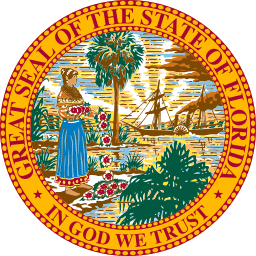11th Circuit Enjoins Enforcement of Florida Statute on Alien Ownership of Property
Foreign ownership of agricultural property in the United States has become more common over the past decades, leading to increased efforts to limit the practice. The U.S. Court of Appeals for the Eleventh Circuit is currently waiting to hear oral arguments in Shen v. Simpson a challenge to a Florida statute (SB 264) that restricts…
Continue ReadingNinth Circuit Gets Tangled Up in Minimum Contacts and Due Process
Do the Fifth Amendment’s due process protections require minimum contacts? And do those protections apply to foreign states sued under the Foreign Sovereign Immunities Act (FSIA)? Those are the fundamental questions on which Ninth Circuit judges offered differing approaches as they resolved a recent petition for rehearing en banc. Regular TLB readers may recall that…
Continue ReadingCase Brought by Jamal Khashoggi’s Widow Dismissed
Hanan Elatr Khashoggi sued Israeli spyware companies in connection with the death of her husband, journalist Jamal Khashoggi. A critic of the Saudi government, Khashoggi was killed in Istanbul, Turkey at the Saudi Arabian consulate. Last year, Judge John Bates (D.D.C.) dismissed a civil suit against Saudi Crown Prince Mohammed bin Salman on grounds of…
Continue ReadingCourt Rejects Challenge to OFAC Blocking Order
Sanctions are an increasingly important part of United States foreign policy, and cases challenging them are also of growing significance. Sanctioned entities face an uphill battle in court however, as illustrated by a recent decision from the Southern District of New York: Rusaviainvest, OOO v. Yellen. Rusaviainvest, OOO (the plaintiffs) challenged an order by the…
Continue ReadingConstitutional Issues in the Sudan Claims Resolution Act
District courts and the Court of Appeals for the District of Columbia have recently issued opinions addressing constitutional issues in litigation against Sudan. The United States and the Republic of Sudan signed an agreement (the Claims and Dispute Resolution Agreement) designed to improve diplomatic relations between the two countries, to promote democracy in Sudan, and…
Continue ReadingA Primer on Foreign State Compulsion
Foreign state compulsion (also called foreign sovereign compulsion) is a doctrine allowing a U.S. court to excuse violations of U.S. law or moderate the sanctions imposed for such violations on the ground that they are compelled by foreign law. The doctrine arises most often when foreign law blocks compliance with U.S. discovery requests and in…
Continue ReadingDiscovery and Immunity: LIV v. PGA
The U.S. legal battle between the PGA Tour (Tour) and the upstart rival LIV Golf continues to revolve around discovery. As regular TLB readers know, LIV Golf is a new professional golf tour that competes with the PGA, in part by luring PGA players to play in LIV tournaments. LIV is financed by the Public Investment…
Continue ReadingSupreme Court Ducks Fifth Amendment Due Process Question
The Supreme Court denied certiorari yesterday in Douglass v. Nippon Yusen Kabushiki Kaisha. This highly-watched case raises an important question that the Court will have to address sooner or later: the Fifth Amendment due process limitations on personal jurisdiction. The Supreme Court’s personal jurisdiction cases have repeatedly interpreted the Due Process Clause of the Fourteenth Amendment…
Continue ReadingPGA v. LIV: Golf, Discovery, Immunity and PIF — The Saudi Arabian Sovereign Wealth Fund
Just as the competition between PGA Tour and LIV Golf has divided the golf world, so too may the immunity issues raised by the litigation divide legal experts. Sadly, this post is pretty weak in terms of golf puns – par for the course in legal writing about immunities – but it does address interesting…
Continue ReadingRecapping Media Coverage of Mallory
Last Tuesday, the Supreme Court heard oral arguments in Mallory v. Norfolk Southern Railway Co., a personal jurisdiction case on review from the Pennsylvania Supreme Court. Robert Mallory, a Virginia resident employed in Virginia and Ohio, sued Norfolk Southern, then based and incorporated in Virginia, in Pennsylvania state court. The case asks the Supreme Court…
Continue Reading- « Previous
- 1
- 2
- 3
- Next »







